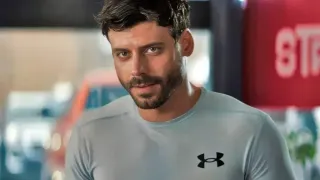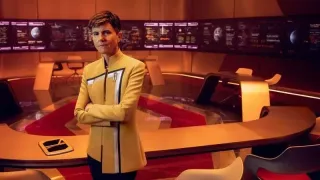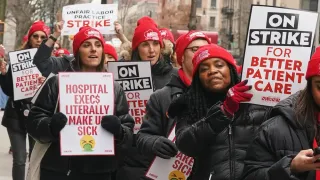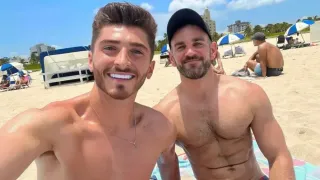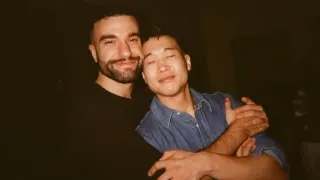October 21, 2015
States Probe VW Over Emissions, Look for Settlement Money
Ronnie Greene and Ryan J. Foley READ TIME: 4 MIN.
An expanding investigation into Volkswagen's emissions-cheating scandal launched by state attorneys general could last years and will likely end in a negotiated settlement.
Forty-five states and D.C. have joined the review, investigating how VW was able to game emissions tests to hide that its "Clean Diesel" cars emitted smog-causing exhaust up to 40 times dirtier than the law allows. The attorneys general are likely to seek compensation for consumers and redress for environmental harm, building their own investigations under state laws that protect consumers from deceptive trade practices and set clean air standards.
"This is a really important case and it has big economic and health consequences. It's nowhere near the scale of tobacco but you are kind of in that realm," said former Wisconsin governor and attorney general Jim Doyle, who participated in the multistate investigation that ended in a landmark settlement against tobacco companies in 1998. "This is the kind of case that you elect an AG for, to stand up for the safety and health of the people of the state."
Volkswagen is "looking at an enormous settlement, just enormous, when you think about how many cars are out there," he said.
The case, in some respects, presents a slam dunk: Volkswagen has already admitted wrongdoing, affecting roughly a half million cars in the United States.
"This case makes me miss my AG days because there's such an opportunity to send a message, and the states can be at the forefront of sending a message," said Sen. Richard Blumenthal, D-Conn., former attorney general of his state.
Blumenthal said he was stunned by news that the world's largest carmaker had rigged its software to dupe emissions tests. "Astonishment bordering on disbelief that a company could be so absurdly arrogant and lawless that it would knowingly engage in this type of conduct," he said.
Though the violations appear clear, the multi-state investigation is not likely to conclude quickly. For comparison, a multi-state attorneys general investigation of ignition switch defects involving GM cars - a review that started shortly after GM announced a recall 20 months ago - remains active today.
Likewise, the VW case in the states promises to unfold at a measured pace. Volkswagen may want to deal first with any criminal charges, as the Justice Department investigates potential illegality by the company and its executives. The Environmental Protection Agency and Federal Trade Commission are also investigating.
"Until the criminal case clears, nobody is going to talk about civil. Volkswagen will not settle until the criminal investigations are resolved," said James E. Tierney, program director of the national state attorneys general program at Columbia Law School, and a former Maine attorney general.
Several states have assumed leadership roles. They are New York, Connecticut, Massachusetts, Oregon, Washington and Tennessee, where VW operates a U.S. manufacturing plant. California and Texas are leading their own inquiries for now.
Texas became the first state to go to court this month, filing lawsuits alleging Volkswagen violated consumer protection laws and clean air standards. The petitions seek restitution for owners of 32,000 VW and Audi diesel models registered in the state and civil penalties, including $20,000 for each violation of the state's Deceptive Trade Practices Act.
By the time the various inquiries are finished, Volkswagen is likely to enter a uniform settlement with all the states, Tierney said.
"Volkswagen will want to settle with everyone," he said. "Eventually all 50 states will be together on this. ... One hundred percent guaranteed everybody will be involved."
In a statement, Volkswagen said it could not discuss specific litigation. But, spokeswoman Jeannine Ginivan added, "We are cooperating with all investigations into the matter."
Blumenthal said it's common for a few large, aggressive states to take a leading role - paving the way for settlements that benefit all. That occurred in the settlement in which tobacco companies agreed to pay $200 billion to states over 25 years. In the second largest attorneys general settlement, the nation's five largest mortgage servicers agreed to pay $25 billion in penalties and relief to homeowners in 2012.
In coming months, state attorneys general will issue subpoenas for VW documents, scrutinizing how the company's actions conflicted with state laws. Illinois and New York have already sent subpoenas.
"This will be a complicated case, no doubt," said Peter Lavallee, spokesman for Washington Attorney General Bob Ferguson. "It's consumers from many states. You do have a foreign corporation or an international corporation. Multiple years are involved, multiple models of vehicles and all the facts are yet to be determined about who did what, when and for how long."
The goal, he said, is to seek restitution for consumers and deter corporate wrongdoing.
Former Wisconsin Attorney General Peg Lautenschlager cautioned that, despite Volkswagen's early admission of wrongdoing, the case could prove challenging to resolve in a way that satisfies everyone.
At this stage, no one knows what any final settlement would entail. In pushing for redress, states will confront an economic reality: They want to compensate consumers and punish VW - but not help lead the company into insolvency.
"The potential (settlement) is real high but in the real world, nobody wants to put this company out of business," Tierney said. "The marketplace has to decide that."
